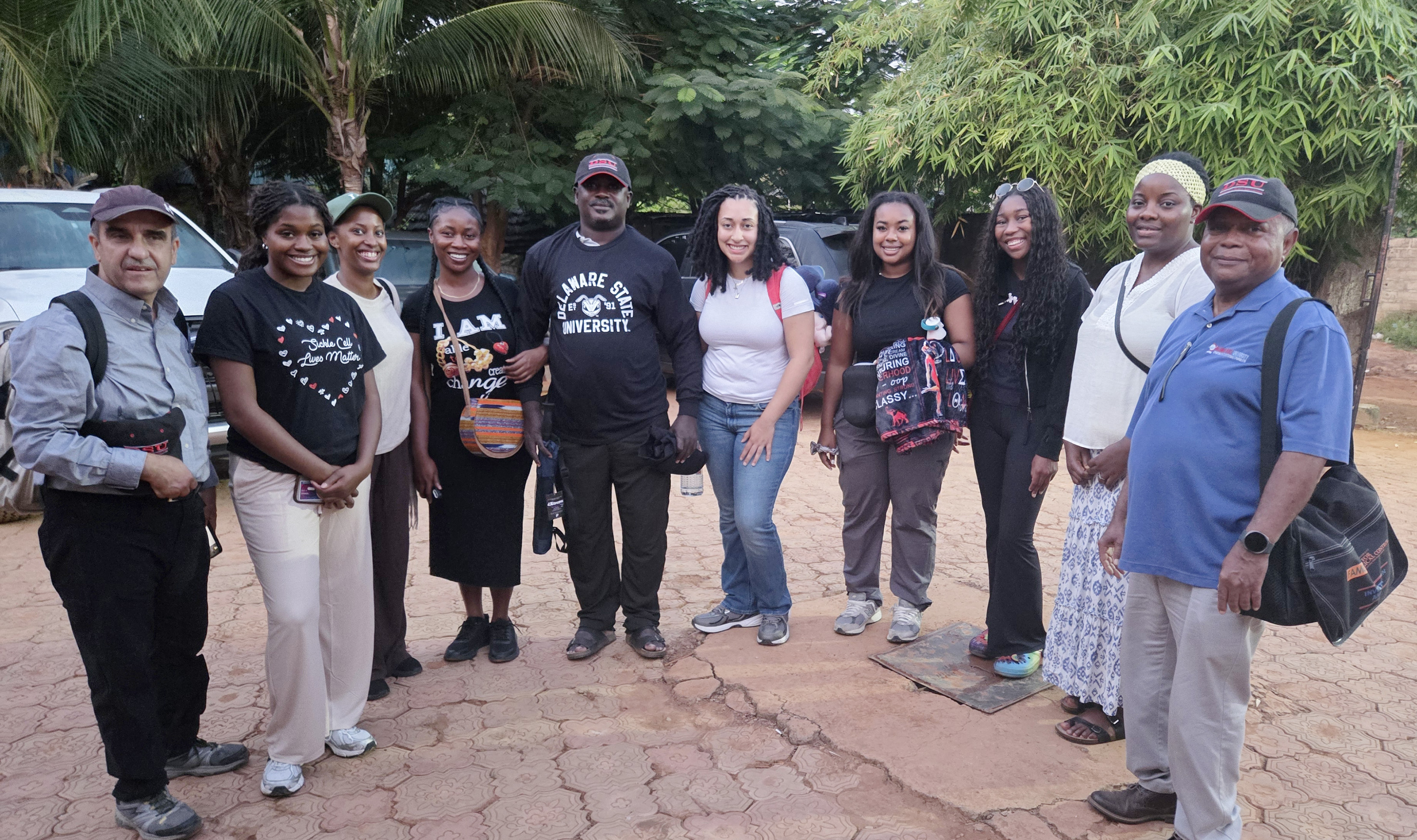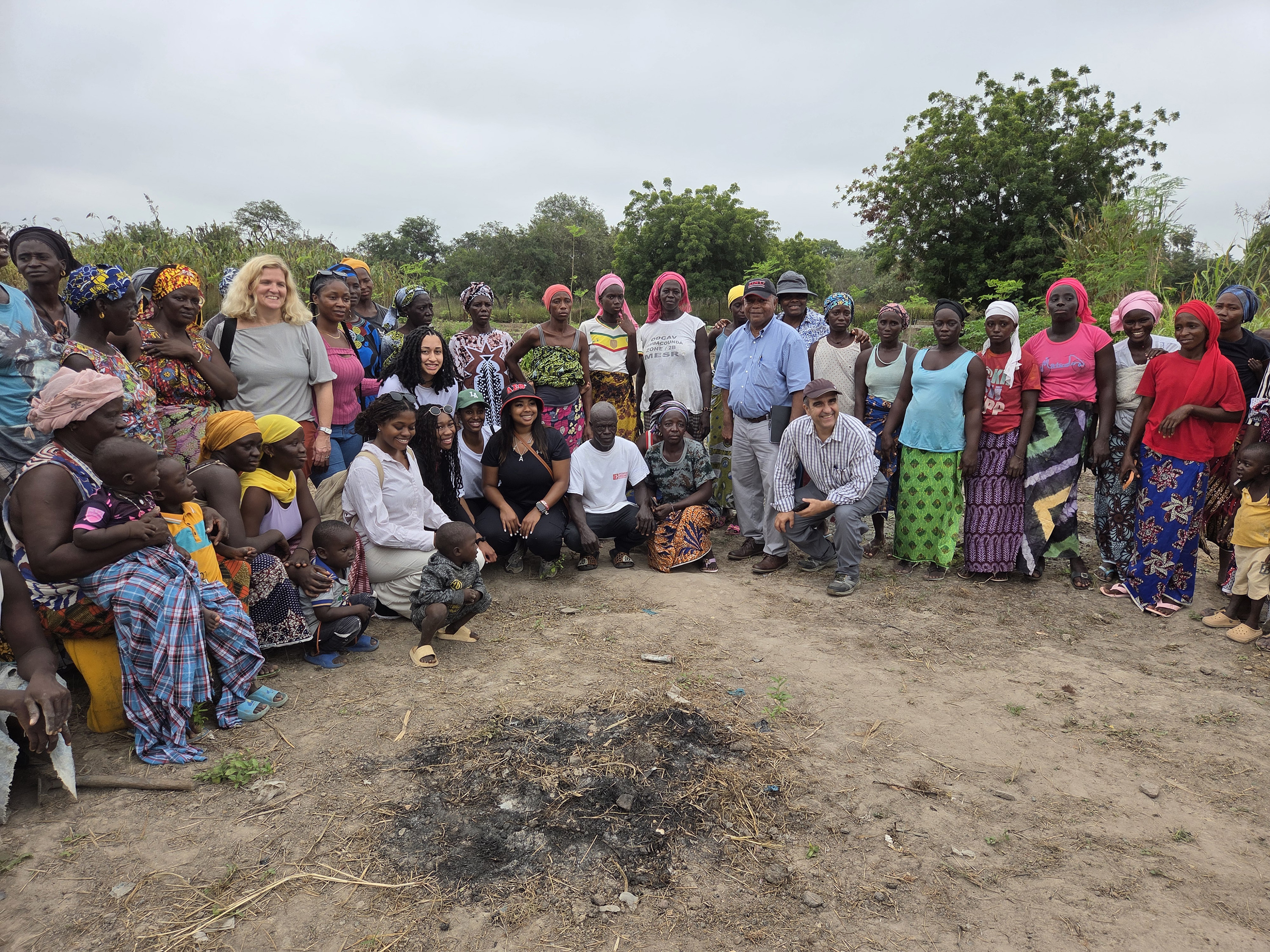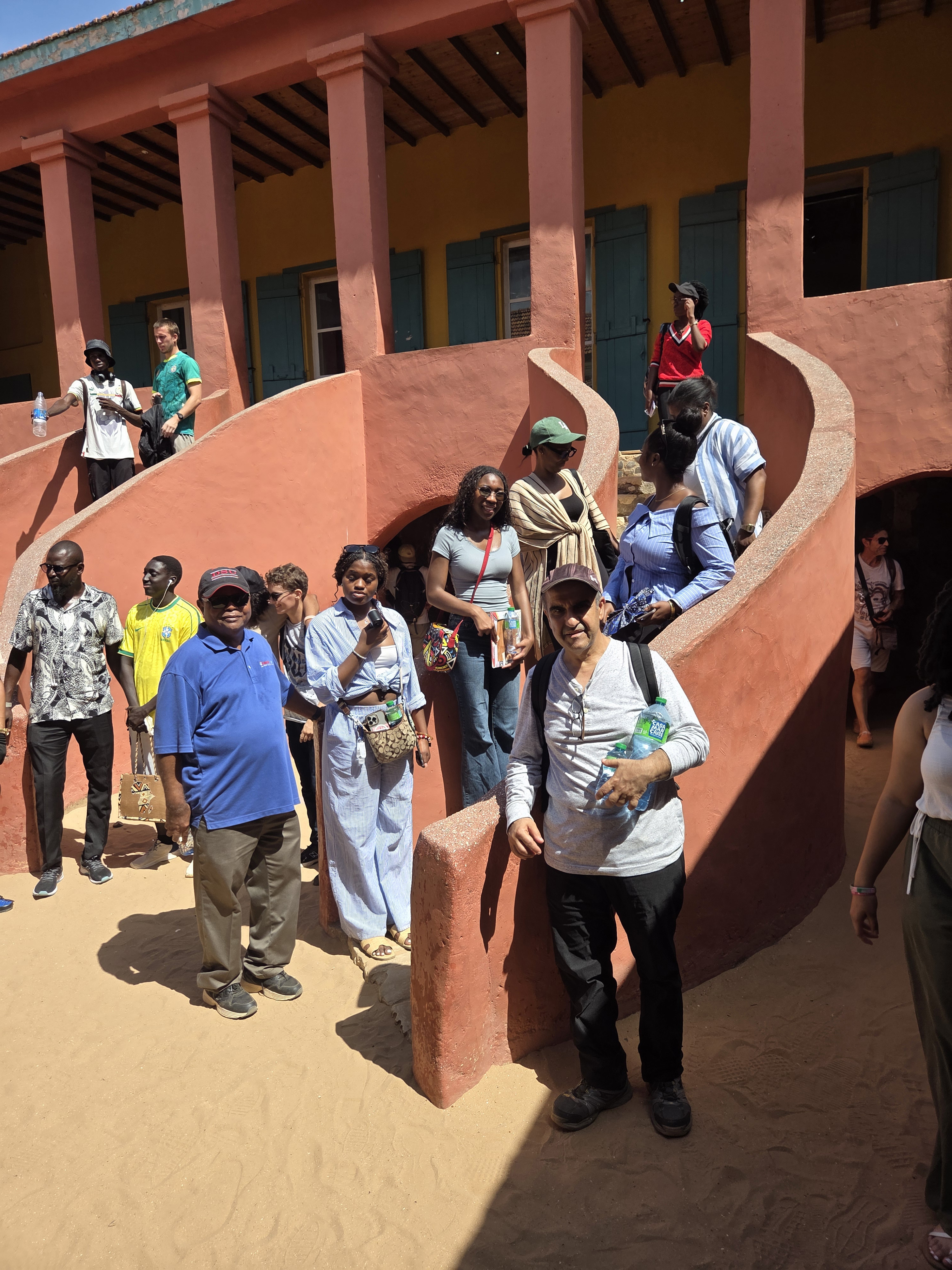
CAST-DSU Mission does field work in Senegal’s climate resistant ag
A nine-person interdisciplinary mission from of Delaware State University – which included six students and three faculty members – successfully concluded an intensive field work diplomacy trip to Senegal, West Africa.
The mission, which took place from Oct. 25 to Nov. 2, was funded by Agilent Technologies and hosted by the non-governmental organization (NGO) SOS-SAHEL in Senegal, The trip was designed to provide the students, and faculty members with a first-hand observations and experiences in the Sudano-Sahel region – an African region that stretches from the Atlantic Ocean to the Red Sea. It encompasses the Sahel known for its drier, semi-arid grassland.
The DSU Mission from the College of Agriculture, Sciences, and Technology included Dr. Hacene Boukari, Associate Dean of Research; Dr. Marikis Alvarez, Associate Dean of Land Grant Research; Dr. Alberta Aryee, Associate Professor of Food Science; as well as students Cayla Mrani-Alaoui, Savannah Davis, Nya Stokes, Yvette Mukunzi, Amber Fitch, and Abigail Ompong.
The team leveraged the University’s expertise to analyze and contribute to vital community-led initiatives focused on climate-resilient food security and economic empowerment.
Traveling to sites in Kaolac, Tambacounda, Kedougou and Dar Salam in Senegal, the DSU team focused on the entire value chain of fonio crops. Fonio (Digitaria exilis) is an ancient, drought-resistant West African “super-grain” that is highly valued for its gluten-free properties and nutritional density. The DSU team had the opportunity to interact directly with the stakeholders in the sites.
The DSU students observed the fonio production process from harvest to the traditional labor-intensive processing, cleaning, and final packaging for market. They also learned the women in the community play a predominant role in the cultivation and processing of fonio, making the grain a powerful vehicle for women’s empowerment and employment in West Africa.
The team also assessed community food security gardens, which are crucial grassroots initiatives operated primarily by local women’s groups. These gardens transform land—sometimes formerly degraded sites—into thriving, sustainable food sources that improve nutrition and provide income.
A key focus was the innovative use of solar-powered irrigation, which pumps well-water into raised storage tanks and enables communities to cultivate crops throughout the year, even during the dry season. The students documented the system’s biodiversity, which included a range of tropical vegetables such as okra, African eggplant, peppers, onion, and tomatoes. The students also assisted the community members in planting vegetable seedlings.
“Our visit to Gorée Island was profoundly moving and reflective,” said Dr. Alvarez. “Once visited by Pope John Paul II, Nelson Mandela, and Presidents Bush and Obama, the island stands as a powerful symbol of the transatlantic slave trade and colonial history.” The DSU Mission visited House of Slaves and its “Door of No Return,” serves as a site of remembrance and global reflection.
Now a UNESCO World Heritage Site, Gorée Island is a vibrant community where daily life and historical memory coexist, emphasizing the role of education in preserving this legacy and empowering future generations.
The students were divided into groups, with one focusing on the production value chain and the other concentrating on marketing strategies. The trip culminated in a formal diplomatic debriefing with the SOS-Sahel and CIRAD management teams. DSU students presented their comprehensive field observations, leading to several actionable recommendations and a final agreement on follow-up priority actions between DSU and SOS-SAHEL.
Cayla Mrani-Alaoui, a senior Pre-Veterinarian major from Springfield, Va., said she was especially fascinated by the key role of women in the villages that the DSU mission visited in Senegal.
“I was amazed at how the women were the leaders of the community,” Ms. Mrani-Alaoui said. “While the women took care of their families, they also oversaw the crop production and the taking of the crops to market.”
Dr. Alvarez said the insights gathered will be leveraged to refine and strengthen subsequent DSU study-abroad missions, solidifying the University’s commitment to global development and experiential learning.

